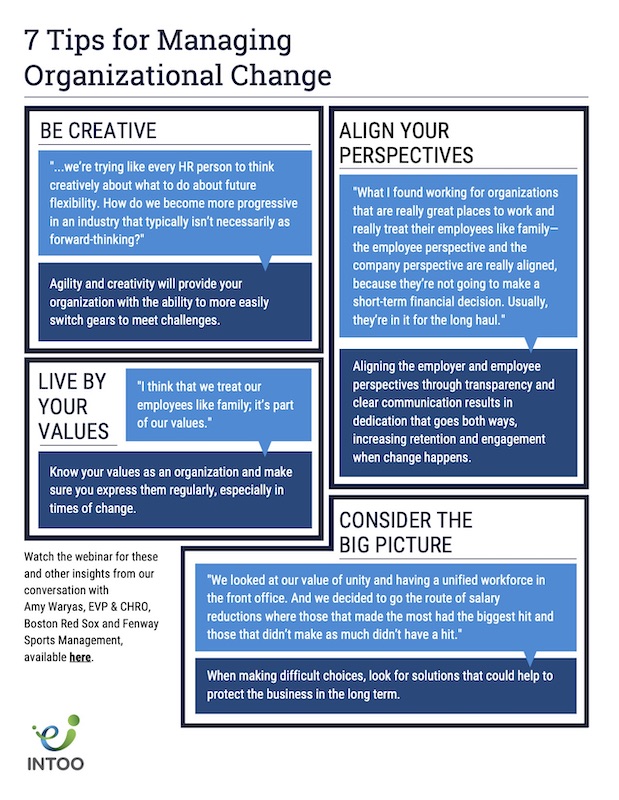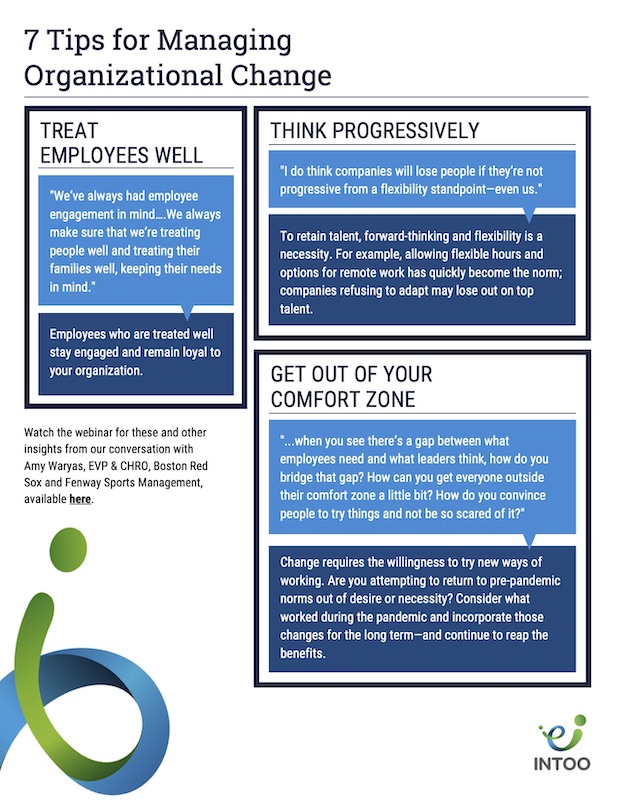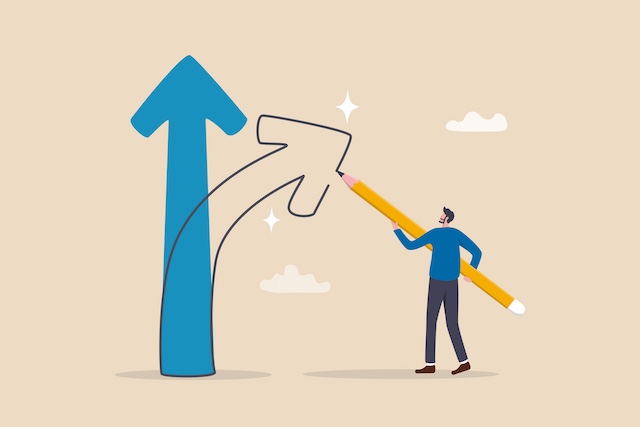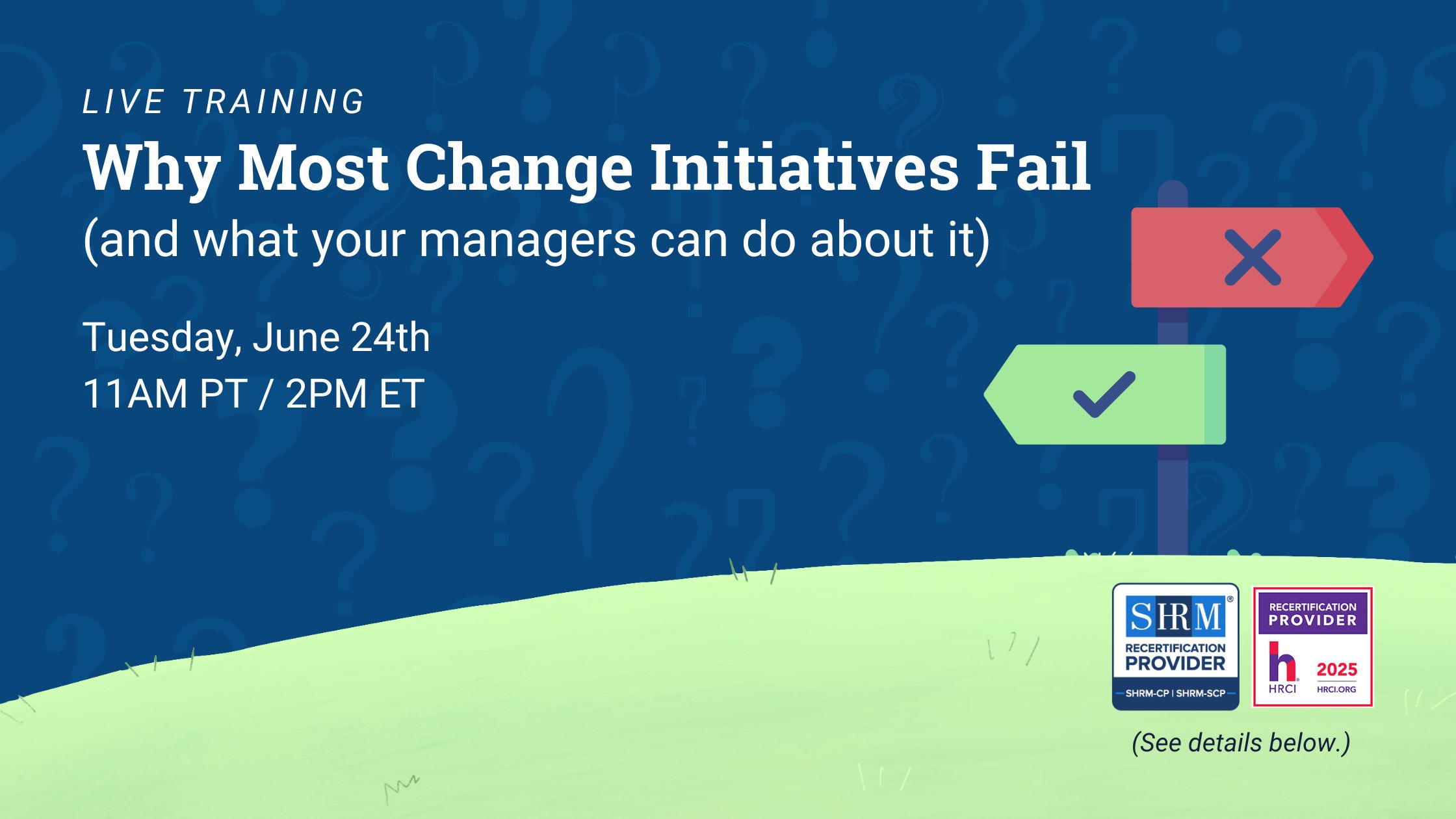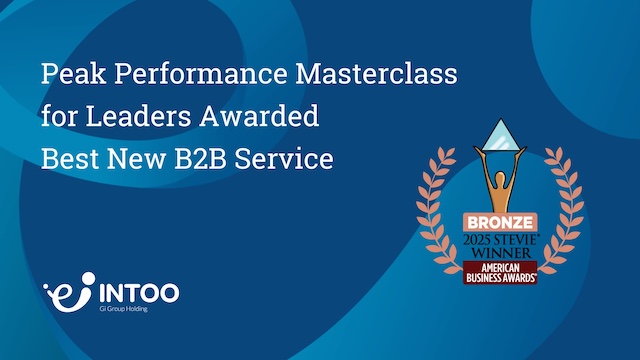Recent corporate history is filled with cautionary tales of large organizations that ultimately failed because they failed to adapt. Blockbuster, Kodak, and Toys ‘R’ Us are among the most popular examples of corporations who ignored impending changes in their respective industries. What may be surprising in each of these cases, however, is that the failures of these companies weren’t simply due to lack of change and innovation. Their actual stories are much more complicated.
Leadership at Blockbuster, for instance, had put together a strategy to address developments in the video entertainment industry, one that was quite successful until it was abandoned following a management change. Once you start looking into the details, it quickly becomes clear that successful adaptation involves more than just an innovative mindset. It requires proper preparation to put the new strategy into motion while ensuring that everyone involved is committed to it. In other words, implementing innovation requires a much broader plan, and this is where organizational change management comes in.
What is Organizational Change Management?
Inc.com describes managing organizational change as a process for making changes in a way that will “minimize employee resistance and cost to the organization while simultaneously maximizing the effectiveness of the change effort.” Basically, organizational change management is the steps you take to craft a plan to change, then develop that plan to have the best chance at success. The details of that change management process will vary depending on the size and intended influence of the shifts you want to accomplish—but a true change management plan needs to consider all aspects of the business.
There are many factors that contribute to effective change management, beginning with defining clear goals that can be measured throughout the process and adapted if necessary. Establishing these objectives early helps with getting buy-in from leadership and other stakeholders and allows you to make a clear determination on whether the change is a success. The formal change management plan should also include details such as deadlines and anticipated benefits.
The second critical element of effective organizational change management is communication. In the beginning, this means ensuring that each individual not only knows their role in the transition but also understands why the change is necessary. Open communication throughout a change process is essential to successful implementation, and your communication strategy may include a training program to address the use of new software, processes, or procedures.
Constant monitoring is another must-have aspect for any organization-wide change program. This means tracking costs (and your ROI), deadlines, implementation, and even sentiments at regular intervals. Close monitoring of these factors helps to ensure that your change process is on track to succeed and also identify issues early on so that they can be addressed before putting the entire program at risk.
Although the corporate examples above represent a rather extreme type of industry shift, the principles and benefits of organizational change management apply to all different types of transitions. These include everything from introducing a new product line or adopting a new software solution to a larger change in your organization’s structure. The key to successful innovation is using the right organizational change management approach based on the type of change to be enacted.
Identifying Types of Organizational Change
There are four main types of organizational change, based on the focus of the change that is going to take place. Strategic changes relate to your business’ overarching purpose and priorities, such as a shift in mission or a refocus on particular values. A structural change involves reorganization of the company hierarchy and adaptations in reporting and management structure, as well as relocations, acquisitions, and mergers.
Organizational changes that are a process-oriented focus on the systems and technologies your company uses or on the specific skills and training that are prioritized for employees. Finally, people-oriented changes are ones that target various characteristics of your corporate team: improvements in performance, collaboration, and even morale within the organization.
Additional factors will also distinguish your change management strategies and needs from those of other organizations. The nature of your transition plan will depend in part on whether the change is part of a long-term plan or an unexpected change (in response to competitor actions or a sudden business need). At the same time, the level of influence the change will have is another important factor to consider. This last facet can range from as small as an adjustment that affects one individual to as large as an organization-wide adaptation that requires participation from every team member.
Employee Reactions to Organizational Change Management
Two of the most common factors that derail change implementation are costs and employee resistance. The first hurdle of costs, which can include time and resources as well as purchases, can be overcome by demonstrating the potential return-on-investment and the careful tracking of costs throughout. The second barrier requires a higher degree of planning, communication, and understanding.
Many change management plans fail because employees are informed of the changes without an explanation of why these changes were happening. A recent survey found that nearly one-third of employees didn’t understand the reason behind the transitions they were experiencing in their organizations. The instruction to change without this added meaning can make it hard for team members to embrace changes that can greatly affect their daily work lives.
Earning employees’ cooperation begins with clearly explaining the purpose behind the changes being made. A focus on the benefits for the future of the organization motivates employees to do their part in making the transition successful—and to encourage others to do the same. In addition, clear communication throughout the process helps make team members feel like they’re taking part in an important move toward the future, rather than alienated by unexplained changes.
In the event that your change program includes significant restructuring or layoffs, communication becomes even more important for helping those who may be leaving while maintaining the morale and cooperation of those who are staying. Transparent communication, along with an outplacement plan, can turn a challenging situation into an opportunity for your organization to demonstrate its concern for employees and build on its brand reputation.
Leadership participation at all levels has the greatest influence on how employees react to your plans for change. As ambassadors for the new vision, executives and managers must communicate with their team members throughout the change and demonstrate that as leaders they are embracing new systems or structures themselves. Leaders within the company can also inspire a positive reaction to these shifts by allowing affected employees to be involved in meaningful ways throughout the process.
7 Tips For Managing Organizational Change
Here are some helpful strategies that can help with managing organizational change.
1. Be creative
“…we’re trying like every HR person to think creatively about what to do about future flexibility. How do we become more progressive in an industry that typically isn’t necessarily as forward-thinking?”
Agility and creativity will provide your organization with the ability to more easily switch gears to meet challenges.
2. Align your perspectives
“What I found working for organizations that are really great places to work and really treat their employees like family—the employee perspective and the company perspective are really aligned, because they’re not going to make a short-term financial decision. Usually, they’re in it for the long haul.”
Aligning the employer and employee perspectives through transparency and clear communication results in dedication that goes both ways, increasing retention and engagement when change happens.
3. Live by your values
“I think that we treat our employees like family; it’s part of our values.”
Know your values as an organization and make sure you express them regularly, especially in times of change.
4. Consider the big picture
“We looked at our value of unity and having a unified workforce in the front office. And we decided to go the route of salary reductions where those that made the most had the biggest hit and those that didn’t make as much didn’t have a hit.”
When making difficult choices, look for solutions that could help to protect the business in the long term.
5. Treat employees well
“We’ve always had employee engagement in mind….We always make sure that we’re treating people well and treating their families well, keeping their needs in mind.”
Employees who are treated well stay engaged and remain loyal to your organization.
6. Think progressively
“I do think companies will lose people if they’re not progressive from a flexibility standpoint—even us.”
To retain talent, forward-thinking and flexibility is a necessity. For example, allowing flexible hours and options for remote work has quickly become the norm; companies refusing to adapt may lose out on top talent.
7. Get out of your comfort zone
“…when you see there’s a gap between what employees need and what leaders think, how do you bridge that gap? How can you get everyone outside their comfort zone a little bit? How do you convince people to try things and not be so scared of it?”
Change requires the willingness to try new ways of working. Are you attempting to return to pre-pandemic norms out of desire or necessity?
Conclusion
Even when it’s both necessary and beneficial, change isn’t always easy—and the complex nature of situations within even the smallest companies complicate the challenge. As Blockbuster has demonstrated, it’s not just about having a plan to address changes within your business or within your industry, but addressing them in a way that considers all of those involved.
The principles of organizational change management, applied properly, will help to pave a smoother pathway to change of any size or scope. With detailed goals, continuous monitoring, and constant communication, you’ll experience faster buy-in for your plan by all stakeholders, improved cooperation from those implementing the plan, and better results once your change strategy is in motion.
If you are planning significant changes within your organization, the right resources and partners can make the transition a more successful and positive one. This is particularly true if your change management plan includes structural transformation and downsizing. Assisting employees with outplacement services is one way to ease the transition. Learn more about the ways INTOO can partner with you to provide virtual outplacement services and schedule your demo.


